
- -How-to-Choose-a-Roofing-Material-for-a-Building-in-a-Noise-Sensitive-Area
- -Best-Roof-Material-for-Noise-Reduction
- -Roof-Materials-for-Soundproofing
- -Choosing-Roofing-Materials-for-Quiet-Areas
- -Noise-Reducing-Roof-Options-for-Buildings
1. How to Choose a Roofing Material for a Building in a Noise-Sensitive Area
When constructing or renovating a building in a noise-sensitive area, choosing the right roofing material is critical not only for insulation against weather elements but also for minimizing sound pollution. Whether you're near a busy street, an airport, or in a densely populated urban area, the roof plays an important role in reducing noise. In this guide, we’ll explore how to choose roofing materials that enhance soundproofing and make your living or working space quieter.

Best Enterprises General Contracting East Northport - Home Remodeling & Renovations ( Roofers )
East NorthportSuffolk CountyNew York
370 Larkfield Rd, East Northport, NY 11731, USA
1.1 Why Soundproofing Matters for Your Roof
In noise-sensitive areas, the impact of external sounds such as traffic, trains, airplanes, and even loud neighbors can be overwhelming. A well-chosen roofing material can significantly reduce the amount of noise entering your building, making your environment more comfortable and productive. Roofs with high soundproofing properties not only enhance the quality of life but also increase the value of your property, making it more attractive to potential buyers or tenants.

Bealing Roofing & Exteriors, Inc.
HanoverYork CountyPennsylvania
440 Black Rock Rd, Hanover, PA 17331, USA
2. Best Roofing Materials for Noise Reduction
There are several roofing materials available that provide excellent noise reduction properties. Some materials excel in minimizing airborne noise (such as traffic), while others are better at reducing impact noises (like rain). The following roofing materials are among the best choices for noise-sensitive areas:
2.1 Metal Roofing
Metal roofs are often a popular choice for their durability and energy efficiency. However, they also offer excellent noise reduction when installed with the proper underlayment. Metal roofing can reduce impact noise from rain or hail, though without sufficient insulation, it may amplify some external sounds. The key to enhancing metal’s noise reduction capabilities is the installation of a solid soundproof underlayment, such as foam or rubber, between the metal panels and the roof deck.
2.2 Asphalt Shingles
Asphalt shingles are one of the most affordable and common roofing materials used in residential homes. While they may not provide the same soundproofing benefits as other materials, they are still effective at reducing both airborne and impact noise when paired with additional insulation. Asphalt shingles work well in noise-sensitive areas when installed over a layer of acoustic insulation or soundproofing boards.
2.3 Concrete Tiles
Concrete tiles are heavy, solid, and offer a high degree of sound insulation. They are a great option for reducing noise from both external sources and internal impact noises. The thickness and density of concrete tiles help block out unwanted noise effectively. This material is especially beneficial in areas with heavy rainfall, as it also reduces the sound of raindrops striking the roof.
2.4 Clay Tiles
Similar to concrete tiles, clay tiles are durable and have excellent soundproofing properties. Clay’s density helps absorb noise and can also provide better insulation for buildings in areas with extreme temperatures. Clay tiles are particularly popular in Mediterranean-style homes and are a great option for reducing both air and impact noise.
2.5 Green Roofs
Green roofs, which involve planting vegetation over the roof structure, can significantly reduce noise due to their natural insulating properties. The soil, plants, and layers of insulation work together to absorb sound, making green roofs a perfect option for noise-sensitive buildings. In addition to their soundproofing capabilities, green roofs are also environmentally friendly and energy-efficient.
3. Choosing Roofing Materials for Quiet Areas
When selecting roofing materials for a noise-sensitive building, it’s essential to consider several factors that influence sound insulation. Here are the key factors to keep in mind:
3.1 The Climate and Weather Conditions
The climate of the area plays a significant role in determining the best roofing material. For instance, regions that experience heavy rainfall or snow may benefit from a thicker roof material that can absorb rain and hail sounds. Similarly, areas with high winds might require roofing materials that are more secure and less likely to amplify external noises.
3.2 The Type of Noise
Different roofing materials have varying levels of effectiveness when it comes to blocking specific types of noise. For instance, metal roofs with proper underlayment are great at reducing the sound of rain or hail, while heavier materials like concrete or clay tiles are better at blocking traffic or airplane noise. Assess the predominant noise issue in your area (airborne or impact noise) and choose your roofing material accordingly.
3.3 Insulation and Underlayment
Regardless of the roofing material, adding additional insulation and underlayment can improve your roof’s noise reduction capabilities. High-quality insulation materials, such as foam boards, cellulose, or fiberglass, can be installed beneath the roofing material to create an extra layer of soundproofing. Additionally, using soundproof underlayment between the roof and the ceiling can help minimize noise transfer between floors.
4. Roofing for Soundproofing in Quiet Areas
Soundproofing is an essential aspect of building design in noise-sensitive areas. Whether you're building a home near an airport or a busy city street, choosing the right roofing material can significantly impact your quality of life. The materials mentioned in this guide—metal, asphalt shingles, concrete, clay, and green roofs—each offer their unique soundproofing benefits. The key to ensuring a quiet and peaceful environment lies not only in selecting the right material but also in pairing it with proper insulation and underlayment.
4.1 Expert Roofing Advice
Consulting with a roofing expert is essential when planning to build or renovate in a noise-sensitive area. A professional can assess your needs, evaluate the external noise sources, and recommend the best roofing materials and installation methods to achieve optimal soundproofing. They can also help with installation, ensuring that all the components work together for maximum noise reduction.
5. Using BeachCo Roofing Hub for Your Roofing Needs
If you’re looking for high-quality roofing materials designed for noise reduction, visit BeachCo Roofing Hub. We offer a wide range of roofing options, including metal, concrete, clay tiles, and more, to help you create a quieter environment. Our expert team can guide you through the selection process and ensure that your roof is both functional and soundproof. Get in touch with us today to learn more about how we can help with your roofing project.






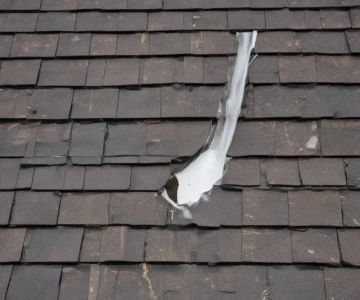
 Diamond Roofing5.0 (2 reviews)
Diamond Roofing5.0 (2 reviews) Davis & Sons Roofing4.0 (40 reviews)
Davis & Sons Roofing4.0 (40 reviews) Americas General Contracting & Roofing Corp.0.0 (0 reviews)
Americas General Contracting & Roofing Corp.0.0 (0 reviews) New Path Roofing5.0 (47 reviews)
New Path Roofing5.0 (47 reviews) Eleven Roofing LLC0.0 (0 reviews)
Eleven Roofing LLC0.0 (0 reviews)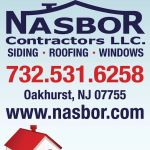 Nasbor Contractors LLC3.0 (3 reviews)
Nasbor Contractors LLC3.0 (3 reviews)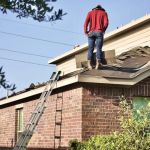 How to Choose a Roofing Contractor That is Licensed in Multiple States
How to Choose a Roofing Contractor That is Licensed in Multiple States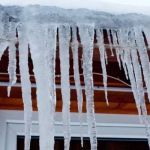 How to Maintain Roof Valleys and Downspouts to Prevent Ice Dams
How to Maintain Roof Valleys and Downspouts to Prevent Ice Dams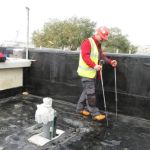 How to Water Test Your Roof to Find the Source of a Leak
How to Water Test Your Roof to Find the Source of a Leak The Cost of Roof Replacement in Different US Regions: What You Need to Know
The Cost of Roof Replacement in Different US Regions: What You Need to Know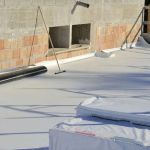 The Pros and Cons of a Fully Adhered Roof Membrane vs. Mechanically Fastened Roof Membrane
The Pros and Cons of a Fully Adhered Roof Membrane vs. Mechanically Fastened Roof Membrane How to Choose a Roofing Contractor with Good Reviews and BBB Rating
How to Choose a Roofing Contractor with Good Reviews and BBB Rating